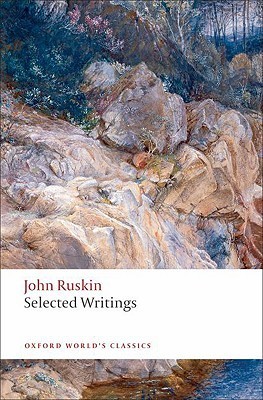What do you think?
Rate this book


324 pages, Paperback
First published June 1, 1972
Taste is not only a part and an index of morality;—it is the ONLY morality.
The idea of reading a building as we would read Milton or Dante, and getting the same kind of delight out of the stones as out of the stanzas, never enters our mind for a moment.
The vital principle is not the love of Knowledge, but the love of Change. It is that strange disquietude of the Gothic spirit that is its greatness; that restlessness of the dreaming mind, that wanders hither and thither among the niches, and flickers feverishly around the pinnacles, and frets and fades in labyrinthine knows and shadows along wall and roof, and yet is not satisfied, nor shall be satisfied.
Perhaps some of my hearers this evening may occasionally have heard it stated of me that I am rather apt to contradict myself. I hope I am exceedingly apt to do so. I never met with a question yet, of any importance, which did not need, for the right solution of it, at least one positive and one negative answer, like an equation of the second degree. Mostly, matters of any consequence are three-sided, or four-sided, or polygonal; and the trotting round a polygon is severe work for people any way stiff in their opinions. For myself, I am never satisfied that I have handled a subject properly till I have contradicted myself at least three times.
The most terrific and horrible thunderstorm, this morning, I ever remember. It waked me at six, or a little before—then rolling incessantly, like railway luggage trains, quite ghastly in its mockery of them—the air one loathsome mass of sultry and foul fog, like smoke; scarcely raining at all, but increasing to heavier rollings, with flashes quivering vaguely through all the air, and at last terrific double streams of reddish-violet fire, not forked or zigzag, but rippled rivulets—two at the same instant some twenty to thirty degrees apart, and lasting on the eye at least half a second, with grand artillery-peals following; not rattling crashes, or irregular cracklings, but delivered volleys. It lasted an hour, then passed off, clearing a little, without rain to speak of—not a glimpse of blue,—and now, half-past seven, seems settling down again into Manchester devil’s darkness.